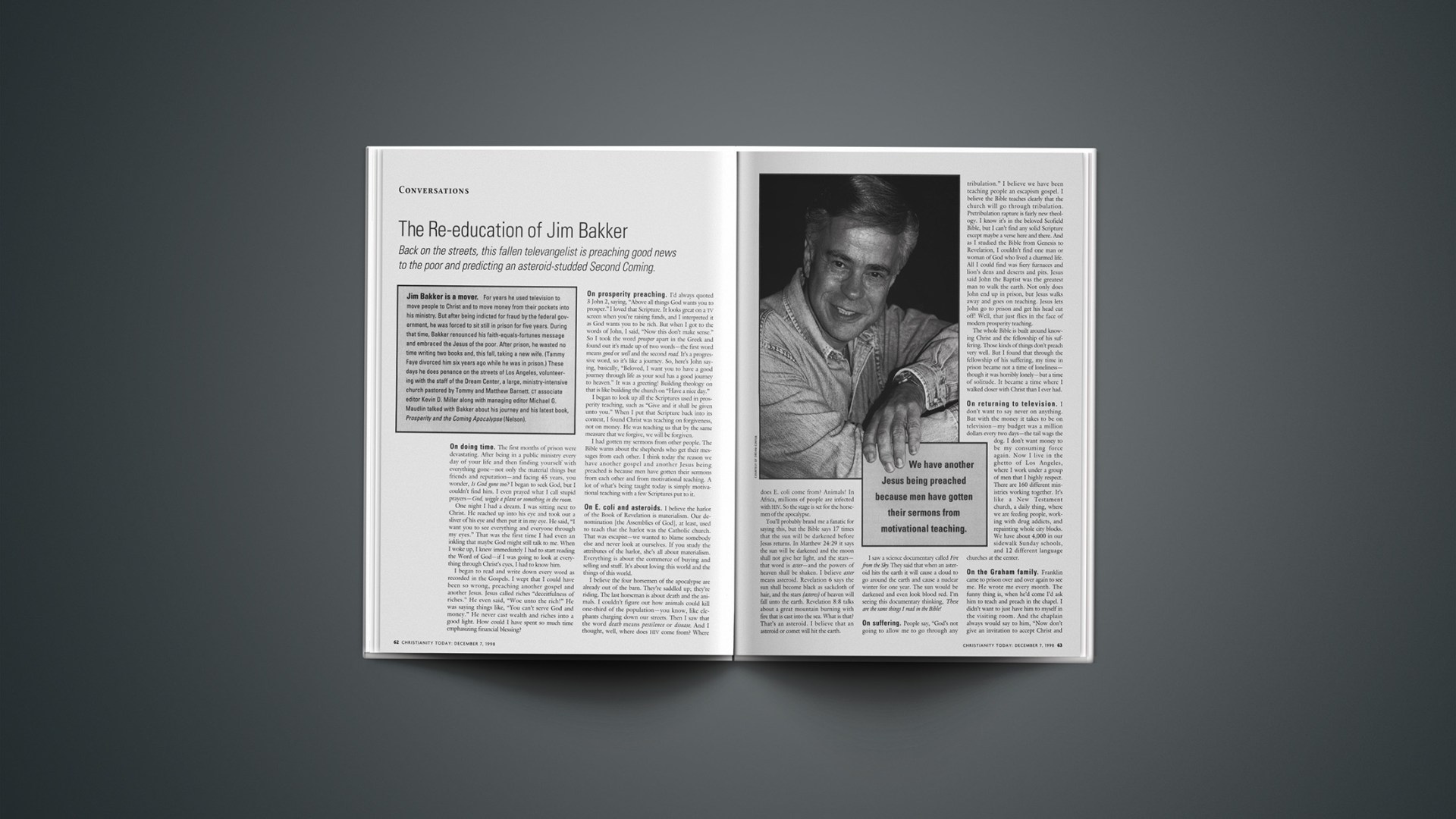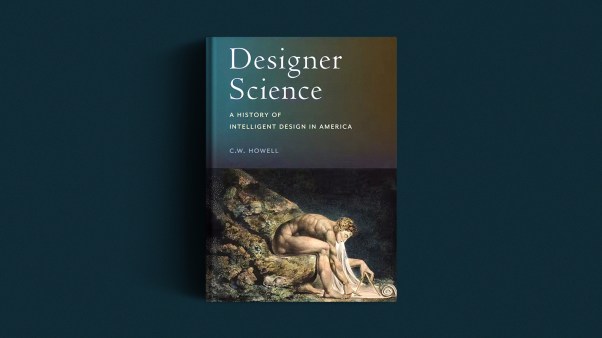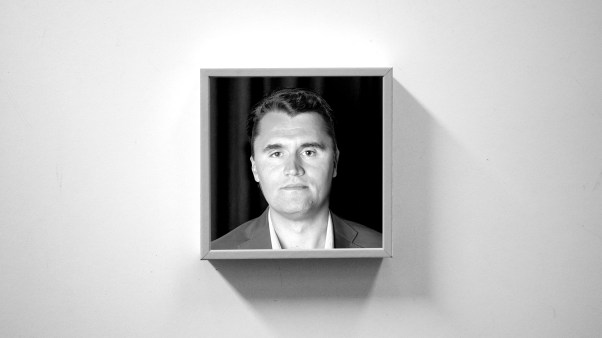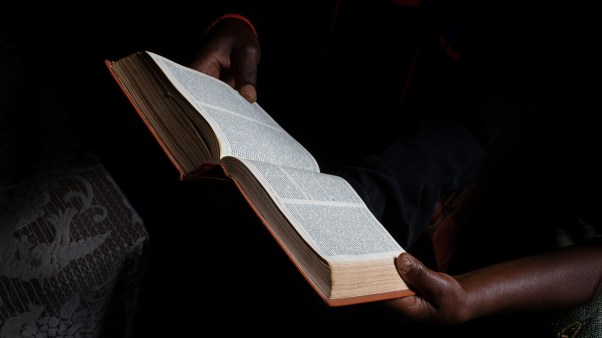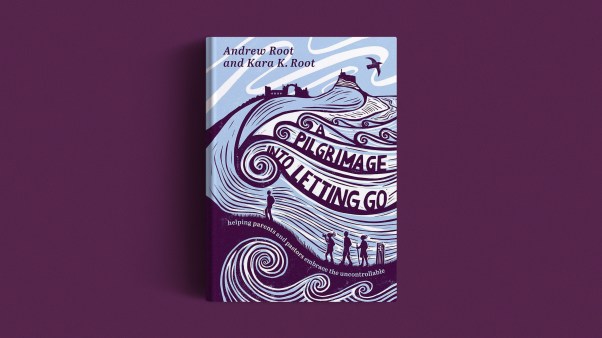Jim Bakker is a mover. For years he used television to move people to Christ and to move money from their pockets into his ministry. But after being indicted for fraud by the federal government, he was forced to sit still in prison for five years. During that time, Bakker renounced his faith-equals-fortunes message and embraced the Jesus of the poor. After prison, he wasted no time writing two books and, this fall, taking a new wife. (Tammy Faye divorced him six years ago while he was in prison.) These days he does penance on the streets of Los Angeles, volunteering with the staff of the Dream Center, a large, ministry-intensive church pastored by Tommy and Matthew Barnett. ct associate editor Kevin D. Miller along with managing editor Michael G. Maudlin talked with Bakker about his journey and his latest book, Prosperity and the Coming Apocalypse (Nelson).
On doing time. The first months of prison were devastating. After being in a public ministry every day of your life and then finding yourself with everything gone—not only the material things but friends and reputation—and facing 45 years, you wonder, Is God gone too? I began to seek God, but I couldn’t find him. I even prayed what I call stupid prayers—God, wiggle a plant or something in the room.
One night I had a dream. I was sitting next to Christ. He reached up into his eye and took out a sliver of his eye and then put it in my eye. He said, “I want you to see everything and everyone through my eyes.” That was the first time I had even an inkling that maybe God might still talk to me. When I woke up, I knew immediately I had to start reading the Word of God—if I was going to look at everything through Christ’s eyes, I had to know him.
I began to read and write down every word as recorded in the Gospels. I wept that I could have been so wrong, preaching another gospel and another Jesus. Jesus called riches “deceitfulness of riches.” He even said, “Woe unto the rich!” He was saying things like, “You can’t serve God and money.” He never cast wealth and riches into a good light. How could I have spent so much time emphasizing financial blessing?
On prosperity preaching. I’d always quoted 3 John 2, saying, “Above all things God wants you to prosper.”I loved that Scripture. It looks great on a tv screen when you’re raising funds, and I interpreted it as God wants you to be rich. But when I got to the words of John, I said, “Now this don’t make sense.” So I took the word prosper apart in the Greek and found out it’s made up of two words—the first word means good or well and the second road. It’s a progressive word, so it’s like a journey. So, here’s John saying, basically, “Beloved, I want you to have a good journey through life as your soul has a good journey to heaven.” It was a greeting! Building theology on that is like building the church on “Have a nice day.”
I began to look up all the Scriptures used in prosperity teaching, such as “Give and it shall be given unto you.” When I put that Scripture back into its context, I found Christ was teaching on forgiveness, not on money. He was teaching us that by the same measure that we forgive, we will be forgiven.
I had gotten my sermons from other people. The Bible warns about the shepherds who get their messages from each other. I think today the reason we have another gospel and another Jesus being preached is because men have gotten their sermons from each other and from motivational teaching. A lot of what’s being taught today is simply motivational teaching with a few Scriptures put to it.
On E. coli and asteroids. I believe the harlot of the Book of Revelation is materialism. Our denomination [the Assemblies of God], at least, used to teach that the harlot was the Catholic church. That was escapist—we wanted to blame somebody else and never look at ourselves. If you study the attributes of the harlot, she’s all about materialism. Everything is about the commerce of buying and selling and stuff. It’s about loving this world and the things of this world.
I believe the four horsemen of the apocalypse are already out of the barn. They’re saddled up; they’re riding. The last horseman is about death and the animals. I couldn’t figure out how animals could kill one-third of the population—you know, like elephants charging down our streets. Then I saw that the word death means pestilence or disease. And I thought, well, where does HIV come from? Where does E. coli come from? Animals! In Africa, millions of people are infected with HIV. So the stage is set for the horsemen of the apocalypse.
We have another Jesus being preached because men have gotten their sermons from motivational teaching.
You’ll probably brand me a fanatic for saying this, but the Bible says 17 times that the sun will be darkened before Jesus returns. In Matthew 24:29 it says the sun will be darkened and the moon shall not give her light, and the stars—that word is aster—and the powers of heaven shall be shaken. I believe aster means asteroid. Revelation 6 says the sun shall become black as sackcloth of hair, and the stars (asteres) of heaven will fall unto the earth. Revelation 8:8 talks about a great mountain burning with fire that is cast into the sea. What is that? That’s an asteroid. I believe that an asteroid or comet will hit the earth.
I saw a science documentary called Fire from the Sky. They said that when an asteroid hits the earth it will cause a cloud to go around the earth and cause a nuclear winter for one year. The sun would be darkened and even look blood red. I’m seeing this documentary thinking, These are the same things I read in the Bible!
On suffering. People say, “God’s not going to allow me to go through any tribulation.” I believe we have been teaching people an escapism gospel. I believe the Bible teaches clearly that the church will go through tribulation. Pretribulation rapture is fairly new theology. I know it’s in the beloved Scofield Bible, but I can’t find any solid Scripture except maybe a verse here and there. And as I studied the Bible from Genesis to Revelation, I couldn’t find one man or woman of God who lived a charmed life. All I could find was fiery furnaces and lion’s dens and deserts and pits. Jesus said John the Baptist was the greatest man to walk the earth. Not only does John end up in prison, but Jesus walks away and goes on teaching. Jesus lets John go to prison and get his head cut off! Well, that just flies in the face of modern prosperity teaching.
The whole Bible is built around knowing Christ and the fellowship of his suffering. Those kinds of things don’t preach very well. But I found that through the fellowship of his suffering, my time in prison became not a time of loneliness—though it was horribly lonely—but a time of solitude. It became a time where I walked closer with Christ than I ever had.
On returning to television. I don’t want to say never on anything. But with the money it takes to be on television—my budget was a million dollars every two days—the tail wags the dog. I don’t want money to be my consuming force again. Now I live in the ghetto of Los Angeles, where I work under a group of men that I highly respect. There are 160 different ministries working together. It’s like a New Testament church, a daily thing, where we are feeding people, working with drug addicts, and repainting whole city blocks. We have about 4,000 in our sidewalk Sunday schools, and 12 different language churches at the center.
On the Graham family. Franklin came to prison over and over again to see me. He wrote me every month. The funny thing is, when he’d come I’d ask him to teach and preach in the chapel. I didn’t want to just have him to myself in the visiting room. And the chaplain always would say to him, “Now don’t give an invitation to accept Christ and don’t admit you know Jim Bakker.” He broke the rules every time, both of them. You know when you’re down in prison and Franklin comes and says, “Jim Bakker’s my friend,” it would just elevate my life for that moment. And then he’d give an invitation to accept Christ, and guys would come to the Lord.
When I was transferred to my last prison, Franklin said he wanted to help me out when I got out—with a job, a house to live in, and a car. It was my fifth Christmas in prison. I thought it over and said, “Franklin, you can’t do this. It will hurt you. The Grahams don’t need my baggage.” He looked at me and he said, “Jim, you were my friend in the past and you are my friend now. If anyone doesn’t like it, I’m looking for a fight.”
So when I got out of prison the Grahams sponsored me and paid for a house for me to live in and gave me a car to drive. The first Sunday out, Ruth Graham called the halfway house I was living in at the Salvation Army and asked permission for me to go to the Montreat Presbyterian Church with her that Sunday morning. When I got there, the pastor welcomed me and sat me with the Graham family. There were like two whole rows of them—I think every Graham aunt and uncle and cousin was there. The organ began playing and the place was full except for a seat next to me. Then the doors opened and in walked Ruth Graham. She walked down that aisle and sat next to inmate 07407-058. I had only been out of prison 48 hours, but she told the world that morning that Jim Bakker was her friend.
Afterwards, she had me up to their cabin for dinner. When she asked me for some addresses, I pulled this envelope out of my pocket to look for them—in prison you’re not allowed to have a wallet, so you just carry an envelope. She asked, “Don’t you have a wallet?” And I said, “Well, yeah, this is my wallet.” After five years of brainwashing in prison you think an envelope is a wallet. She walked into the other room and came back and said, “Here’s one of Billy’s wallets. He doesn’t need it. You can have it.” It reminded me of the time I was in prison when she took all of Billy’s Bibles in his library he wasn’t using and gave them to me to give to other inmates.
God spoke in my heart that if I didn’t forgive my enemies, I would never leave prison.
On The Apostle. I’m not sure the film is good or bad. I think Franklin [who denounced the movie, which stars Robert Duvall as a wayward Pentecostal preacher] is coming from his perspective. He perhaps hasn’t seen that side of Christianity. But talking to some of the old-timers, they told me they felt that that Southern preacher portrayed a hard reality, that there are people with that kind of roughness to them.
The thing that did impress me in the movie was the salvation prayer near the end. It was the most moving conversion experience that I’ve ever seen portrayed by Hollywood. I went to see the movie with some friends, and I was determined not to have any emotion about it. But as it got near the end and Robert Duvall—the preacher—had gotten his life somewhat together and was loving those people and that church, and then the police came and put him in handcuffs, I began to sob in that theater. I didn’t realize the pain was still deep inside of me. I tried not to cry, so it came out in loud bursts. My friends didn’t know what to do. I guess I identified with the character at that point as I remembered the pain of being shackled and being taken away myself.
I grew up in an era of law. But either we believe in grace or we don’t. So I have to accept the grace in that story—even though it’s fictional—if I’m going to accept grace for myself. And to forgive me is the hardest thing I have to do today. I have no problems forgiving others. When I was in prison, God spoke in my heart that if I didn’t forgive my enemies and pray for God to bless them, I would never leave prison. But I am still struggling with my own forgiveness. The pain of my failure is something that’s hard for me to deal with. So for me The Apostle is the story of a man who did a terrible thing, but yet his heart, like David’s, was toward God. David murdered. David committed adultery. But the thing we learn from the life of David is that he kept his heart toward God. That’s why we can’t judge one another, because God sees the heart.
Copyright © 1998 Christianity Today. Click for reprint information.

